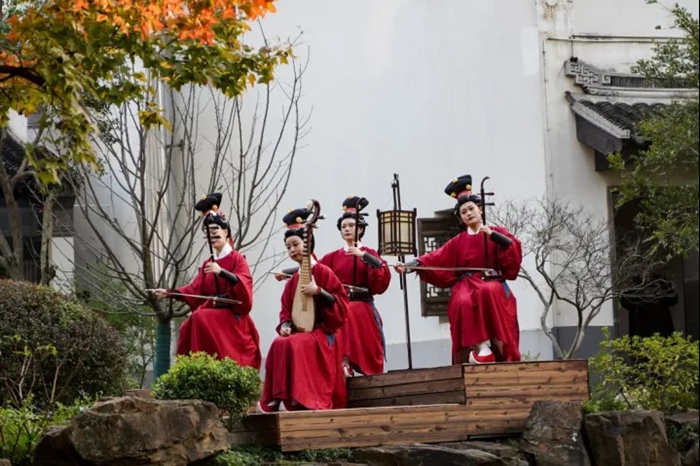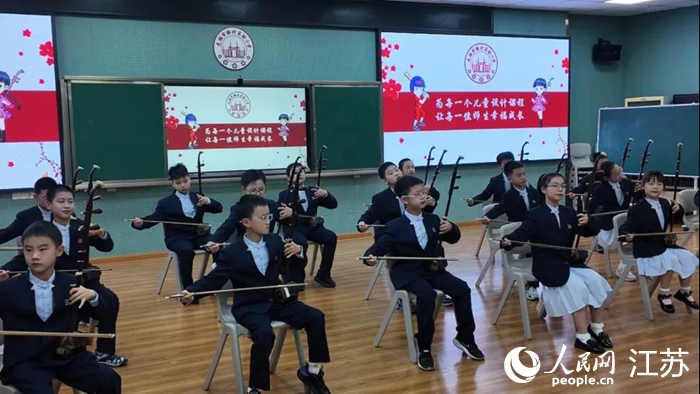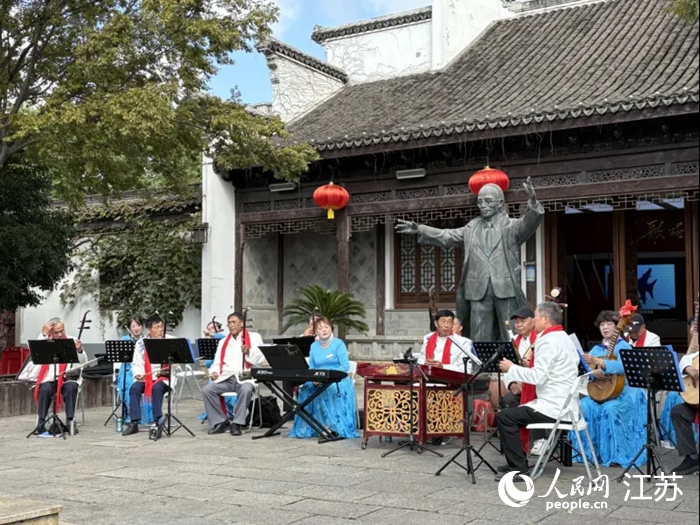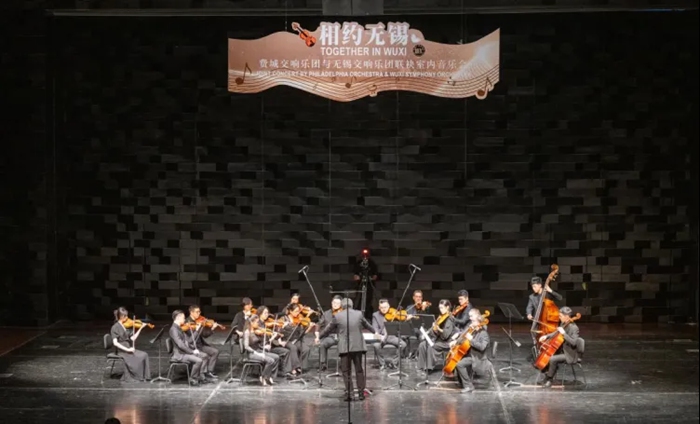




- BRNN
- BRI News
- BRNN News
- Database
Official Documents Polices and Regulations
Inter-government Documents International Cooperation BRI Countries
Business Guide Economic Data BRI Data
Trade
Investment Projects Latest projects
Cases - Content Pool
Wuxi in east China's Jiangsu Province has been named a "Creative City of Music" and added to the Creative Cities Network of the United Nations Educational, Scientific and Cultural Organization (UNESCO), the U.N. agency announced Oct. 31.
Launched in 2004, the UNESCO Creative Cities Network covers eight creative fields: architecture, crafts and folk art, media arts, design, film, gastronomy, literature, and music. It serves as an important platform for cities around the world to exchange experiences and promote innovative practices.
"The selection process is rigorous, covering aspects such as musical traditions, the music ecosystem, education, industrial foundations and international exchange capabilities," said Hua Ying, director of the promotion center for Wuxi's bid to become a UNESCO Creative City of Music.
As of 2024, 18 Chinese cities, including Beijing, Shanghai and Shenzhen, had joined the UNESCO Creative Cities Network, but none had been recognized as a Creative City of Music. At the end of 2023, Wuxi officially launched its bid for the title, conducting a comprehensive review of its musical resources.
For Wuxi, the application is not only about filling that gap but also about advancing long-term urban development goals. As a major manufacturing hub in Jiangsu, Wuxi recorded a GDP of 1.63 trillion yuan ($228.6 billion) in 2024, with per capita GDP reaching 217,000 yuan. However, its international cultural influence still has room to grow.
Wuxi's confidence in applying for the title stems from its rich musical heritage, strong industrial foundations, and broad public participation.
Wuxi has nurtured many musicians and today is home to eight large theaters and concert halls, 18 music-themed museums and memorials, and over 1,000 performance spaces, including small venues and community stages. The Wuxi Grand Theatre staged more than 200 high-quality performances in 2024.

Artists perform at a music festival in Wuxi, east China's Jiangsu Province. (Photo courtesy of the Publicity Department of the Communist Party of China Wuxi Municipal Committee)
A well-developed music industry ecosystem underpins Wuxi's success. The city has 370 music-related enterprises and 2,079 training institutions, with its music and creative industries generating about $1 billion in annual value added.
In Meicun subdistrict of the city's Xinwu district, more than 10 workshops produce nearly 50,000 erhus each year, accounting for about a quarter of China's mid- to high-end market. The erhu is a traditional Chinese musical instrument.
Of the world's 18 harmonica makers with independent brands and full production capacity, six are based in Wuxi, making the city the world's largest harmonica manufacturing base. The city also holds a 43 percent share of China's accordion market, forming an industry cluster that integrates both traditional Chinese and Western instruments.
Wuxi also excels in music education and community participation. It has more than 500 amateur music troupes and 80 school music clubs.

Students in an erhu club play the instrument at a primary school in Wuxi, east China's Jiangsu Province. (People's Daily Online/Liu Yijia)
As music and tourism become increasingly intertwined, enjoying live performances has become a hallmark of visiting Wuxi.
In the city's Dangkou Ancient Town, performances by a local folk music troupe often draw tourists to the statue of Wang Shen, a renowned Chinese musician from Dangkou. Troupe leader Xu Darong said they perform more than 30 free shows for visitors annually.
Wuxi hosts numerous music festivals each year. The second Taihu Beer Music Festival, for instance, attracted nearly 510,000 visitors over 17 days and generated more than 30 million yuan in spending.

Artists from a folk music troupe perform in front of the statue of Wang Shen, a renowned Chinese musician, in Dangkou town, Wuxi, east China's Jiangsu Province. (People's Daily Online/Liu Yijia)
"Earning the title of a Creative City of Music will directly boost Wuxi's music industry and further promote cultural tourism, artistic exchange, city branding, and economic and trade development," said Hu Xiaowu, executive dean of the Institute of Urban Science at Nanjing University.
Music is also becoming a bridge between Wuxi and the rest of the world. In recent years, the Wuxi Symphony Orchestra has performed in France, Japan, Belgium and Croatia. Meanwhile, the Erquan Yingyue Wuxi International Ethnic Music Festival has welcomed ensembles from 10 countries, including Canada and Italy.

The Philadelphia Orchestra from the United States performs during an exchange event in Wuxi, east China's Jiangsu Province. (Photo courtesy of the Publicity Department of the Communist Party of China Wuxi Municipal Committee)

Tel:86-10-65363107, 86-10-65368220, 86-10-65363106